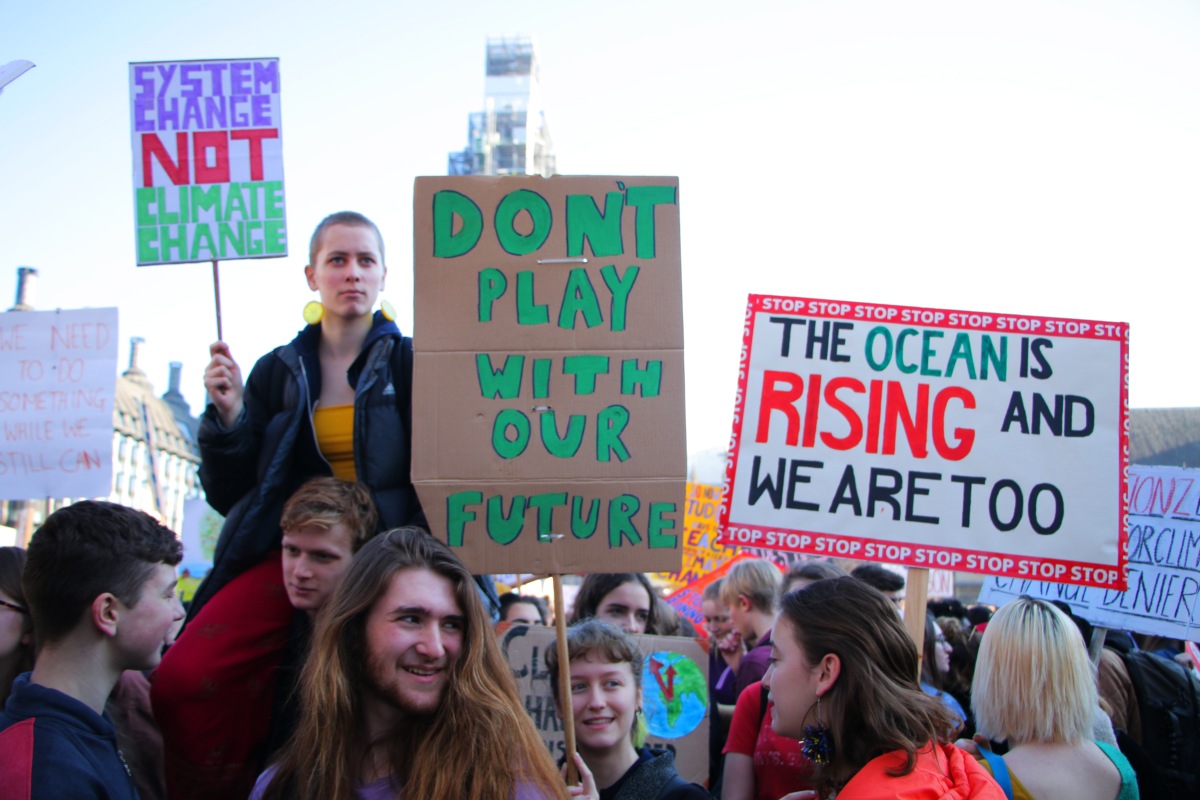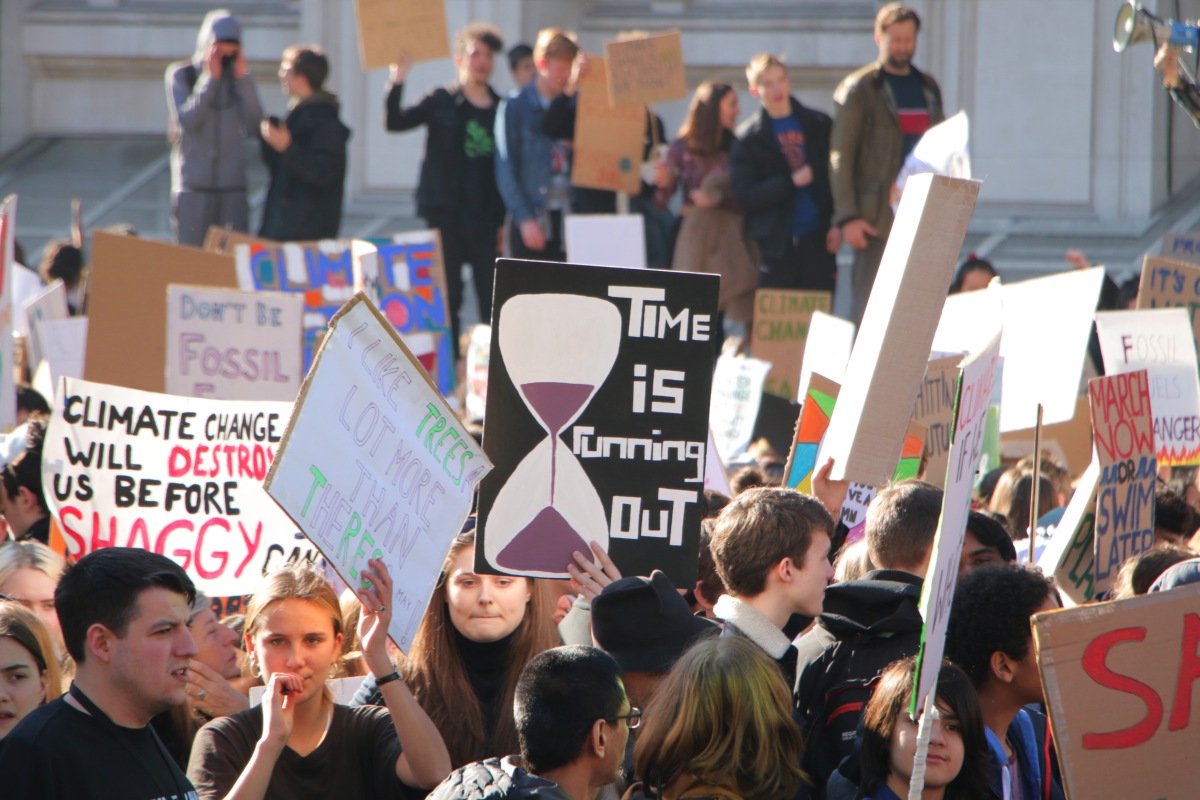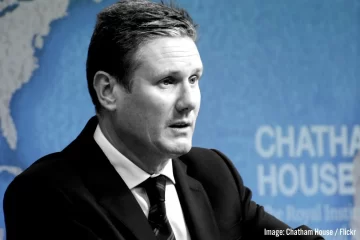The #YouthStrike4Climate is a global movement with radical implications. The strikes and demos have been militant, largely spontaneous and massive in size. On 15th March 1.4 million students went on strike in 129 countries. But the movement has to begin thinking beyond these latest strikes if its aims are to be achieved.
The challenge of tackling climate change is immense. And its importance is essential. But this will not be achieved without fundamentally transforming our economy and our society. The youth strike movement must therefore be a first step along a revolutionary path. And in order to advance, the movement must expand and broaden out.
Student struggles historically have often acted as a spark to much wider, more potent movements. On our own, as students, we have little power. But the discontent amongst youth frequently reflects broader frustrations within society. And if we organise and reach out, we can capture this mood and be a catalyst to a genuinely powerful political movement.
Just over 50 years ago in May 1968, for example, students in France occupied their universities in protest against imperialism and injustice. This rebellion quickly spread to the working class, who came out onto the streets in solidarity. Eventually there were wildcat strikes and occupations in the factories, and a general strike of millions – the biggest ever seen – that brought the De Gaulle government to its knees.
Educate, agitate, organise
This, amongst numerous other examples, provides valuable lessons about how student movements – and the climate strike movement in particular – can be successful.

Firstly, it is vital that school students reach out to the teaching unions and gain their support. A strike of students complemented by a strike of their teachers has much greater power. At the same time, the teaching unions can provide protection to striking students against any potential punishments from school management. This will give confidence to more students to join the strike, increasing the size and strength of the movement even further.
Secondly, university students should also be mobilised to join and support this struggle. The National Union of Students (NUS) has already endorsed the strikes. And feeder marches are planned from many universities, which will link up with the local demonstrations in London and elsewhere.
But we need to push this further. The NUS needs to be turned into a fighting union, actively organising students in these movements around a bold, militant, socialist programme. The NUS nominally represents millions of students in Further and Higher Education. It has enormous resources at its disposal, including the power to forge strong links with other workers and unions. This is vital if the climate strikes are to grow and maximise their impact, becoming a mass movement of workers and students.
All of this can only be achieved if school and university students get organised. Permanent strike committees should be set up in schools, colleges, and universities across the country. These should be elected from the student body, and used to organise and coordinate future strikes, local campaigns, and mass meetings, as well as to liaise and link up with teachers in the NEU (National Education Union) and academics in the UCU (University and College Union).
Regular political meetings should be organised in schools in order to involve the maximum number of students, and to provide political education, share experiences, and ensure that students can be mobilised rapidly when necessary.
Students and workers: unite and fight!

The current wave of political activity, energy and developing consciousness needs to be maintained and developed beyond this current round of strikes and protests. Solidarity between students and workers is vital.
Going forward, this movement must become about more than just climate change. There are many looming political battles that student activists can help to fight, if properly organised and given a bold lead. And these struggles must be linked up and generalised into a fight to change society.
We have a common enemy. The same capitalist class that is forcing austerity and precarious jobs onto workers, is privatising education, slashing youth services, and facilitating the wholesale destruction of our environment in the name of profit. Isolated as individuals we are powerless. But united and organised, as workers and students, we would be unstoppable.
Students and workers must struggle together and unite around a clear socialist political programme. The leaders of the Labour Party and unions need to provide political leadership to this movement, putting forward a bold socialist programme to combat the climate crisis.
In place of capitalism’s ruthless race to the bottom, we need a socialist plan of production, with an economy run by the working class on the basis of needs rather than profits.
We face an impending reckoning and a stark choice: socialism or barbarism. Students must be ready to carry the fight on beyond 15th March if we are to save ourselves and our planet from the barbarism of the capitalist system.
Helena Nicholson, LSE Marxist society




0 Comments